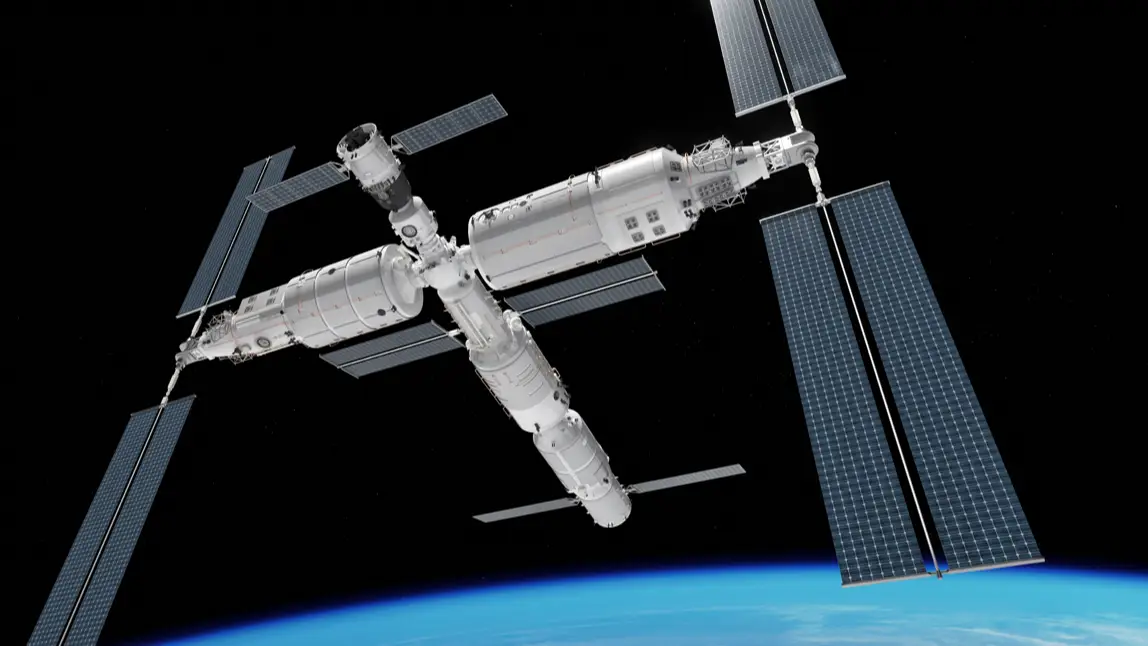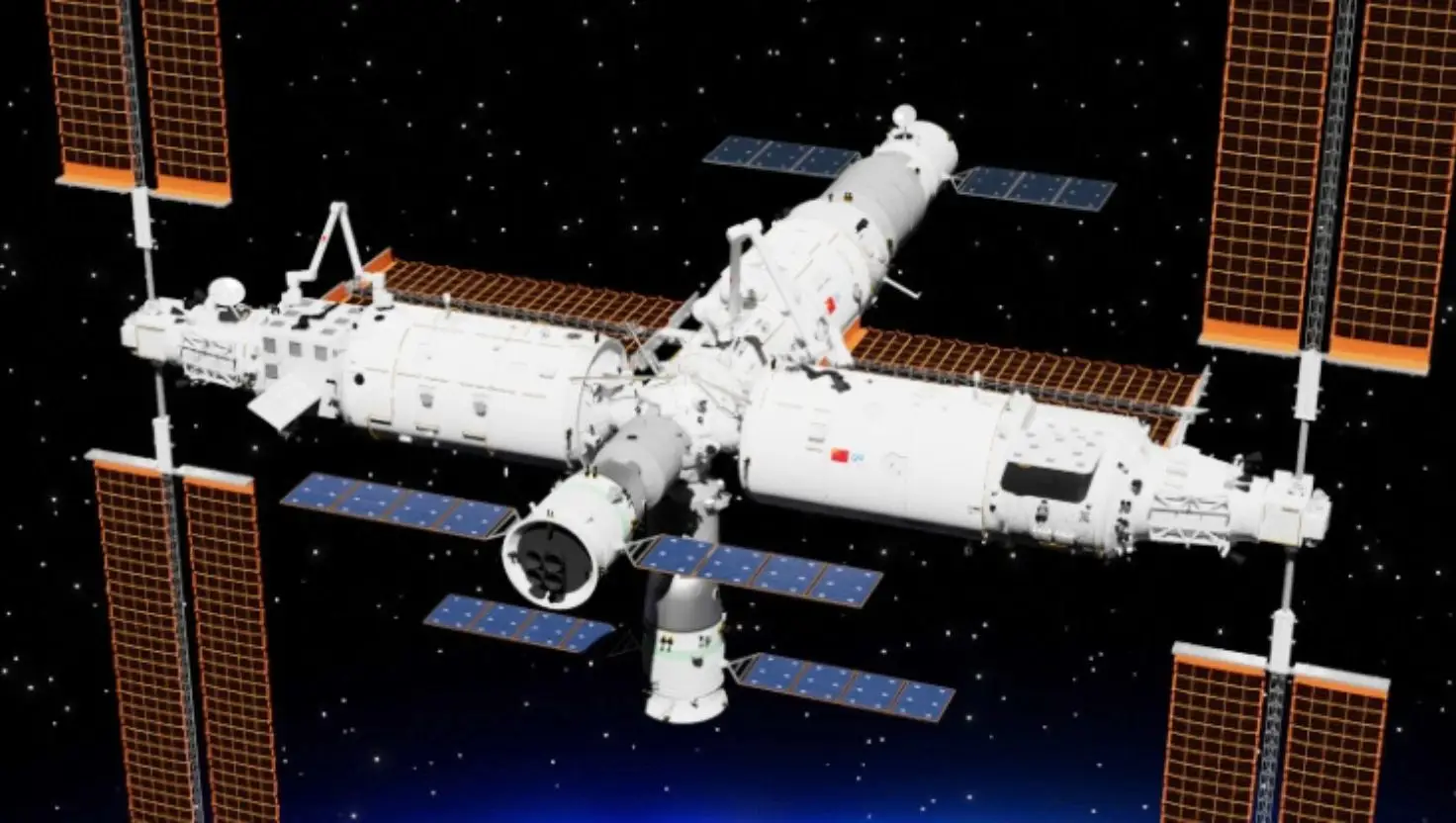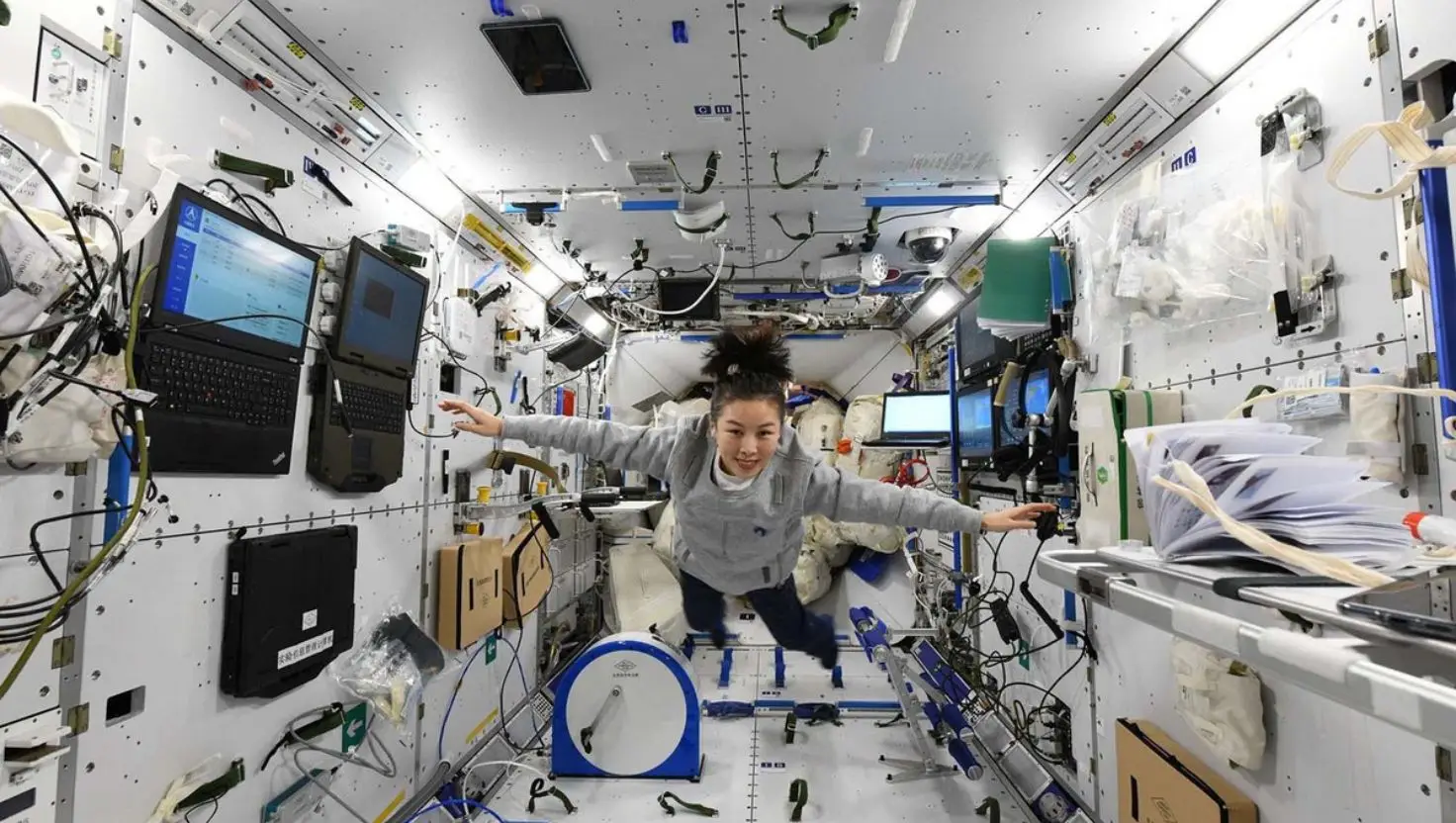
Taikonauts have isolated a strain of bacteria with ‘unique abilities’ onboard the Chinese Tiangong Space Station which, according to a newly published paper, could benefit the study of life as it moves out of space.
Tiangong, the permanently crewed space station constructed by China and operated by the China Manned Space Agency, was launched in September 2021. It is roughly one-third the size of the International Space Station (ISS).
Four years after its launch, scientists have now reported that a novel strain of bacterium named Niallia tiangongensis has been found onboard.
The report is published in the International Journal of Systematic and Evolutionary Microbiology by the Beijing Institute of Spacecraft System Engineering.
Advert
It states that this bacterium ‘demonstrates a unique ability to hydrolyze gelatin suggesting that it can utilize gelatin as a substrate in nutrient-limited environments’.
Niallia tiangongensis, which doesn’t exist on Earth, is said to have inhabited the cockpit controls on the space station, according to the paper ‘Niallia tiangongensis sp. nov., isolated from the China Space Station’.

It’s also understood that the novel strain is closely related to the terrestrial bacterium, Niallia circulans.
This genus of Gram-positive, rod-shaped bacteria forms spores, meaning it can usually survive in harsh conditions.
Niallia circulans, characterised by a thick cell wall and absence of an outer membrane, is often found in soil, sewage and food.
The bacterium is known to cause serious infections, including abscesses and septicemia.
However, the New York Post writes that Niallia tiangongensis exhibits various mutations that could improve the study of life as it moves out into space.
The report states that experts from the China Space Station Habitation Area Microbiome Program collected swab samples from around the space station in May 2023.
These were frozen before being sent back to Earth for further study, the South China Morning Post states.
“This discovery highlights the complex and resilient nature of microbial life,” a researcher said. “Even in highly controlled environments like Tiangong, life finds ways to adapt and persist.”

At this point, it’s unclear whether or not Niallia tiangongensis developed and evolved on the space station, or whether it’s an unclassified species derived from Earth.
It’s understood that further testing is needed to determine whether or not it could harm taikonauts aboard Tiangong.
Researchers from the Shenzhou Space Biotechnology Group say further study of the novel strain is ‘essential’ in protecting space explorers’ health and wellbeing.
The new report comes a year after scientists revealed a bacterium found onboard the ISS had strangely mutated.
As per a study released in March 2024, a ‘niche’ strain of Enterobacter bugandensis was discovered onboard the ISS in 2018.
It’s understood it had become ‘distinct from its earthly counterparts’, with the report stating: "Enterobacter species act as opportunistic human pathogens, causing nosocomial infections with bacteremia, lower respiratory tract, osteomyelitis, sepsis, and urinary tract infection.
As to what 'drives' the bacteria, the study explained: "A hypothesis central to our study was that the singular nature of the stresses of the space environment, distinct from any on Earth, could be driving these genomic adaptations."
Due to the bacteria affecting astronauts’ health, medical experts hoped the report would ‘offer a window into the microbial ecosystem dynamics within the ISS'.
Topics: Space, International Space Station, Health, Science, World News, China
